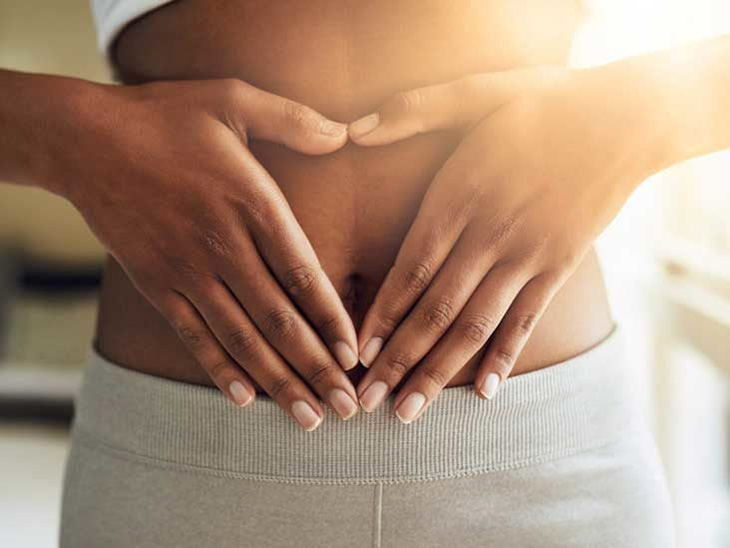
There have been endless studies that talk about the gut, microbiota, and everything else gut health that have been published over the past decade, and that’s because a person’s overall health depends on just how healthy the gut and microbiota is. And in addition, a new study has found that there is even a particular hyper-efficient microbe species in people’s guts that could be the reason behind why some people gain weight, while others don’t.
The ideas behind diet, weight gain, obesity and everything in between has been a hot topic for decades, as well as why some people can eat whatever they want without gaining an ounce, while others gain weight just by looking at food. However, scientists now think that this could actually be due to the composition – or microbiota – of the microbes in people’s gut.
What the researchers looked at was the residual energy in the waste of 85 participants – all Danes – to see just how effective their gut microbes were at getting the energy from their food intake. Simultaneously, they also mapped out the composition of every participants’ gut microbes.
What they found was that ‘roughly 40% of the participants belong to a group that extracts more energy on average from food compared to the other 60%.’ Moreover, the researchers also discovered that for those that were able to extract the most energy from their food weighed at least 10% more on average, which also amounted to an additional 9 kilograms, which is roughly 20 pounds.
According to Associate Professor from the University of Copenhagen’s Department of Nutrition, Exercise and Sports, Henrik Roager, who also happened to lead the study said, “We may have found a key to understanding why some people gain more weight than others, even when they don’t eat more or any differently. But this needs to be investigated further.”
What the results show is that being overweight doesn’t necessarily relate just to the way they eat, how they exercise, or how much sleep they get. In fact, it might actually be due to the composition of a person’s gut microbes.
For the study, the research group divided the participants into three groups, which they based on the gut microbe composition. It was found that the B-type composition – which is dominated by the Bacteroides bacteria – is more efficient at extracting the nutrients from food. Moreover, this type of bacteria was seen in at least 40% of the participants.
The study findings was published in the Microbiome journal, and what researchers think is that a large portion of the human population may actually ‘be disadvantaged by having gut bacteria that are a bit too effective at extracting energy.’
Because of their effectiveness, it might cause additional calories in the food for their human hosts to eat, even in the same amount of food as what others eat. And while this was probably good for our early ancestors during times when food was not as easily available, these days when food is abundant at every turn, it could actually be what’s causing the obesity issue.
As explained by Dr. Roager, “The fact that our gut bacteria are great at extracting energy from food is basically a good thing, as the bacteria’s metabolism of food provides extra energy in the form of, for example, short-chain fatty acids , which are molecules that our body can use as energy-supplying fuel. But if we consume more than we burn, the extra energy provided by the intestinal bacteria may increase the risk of obesity over time.”
Aside from the study looking at the way the gut microbiome extracts energy from food, it also observed the total length of the GI tract of the participants, from their mouths to their stomach to their intestines to their colons. This was to check if the differences in the individual food journey per participant also affected their weight gain.
What they originally believed was that for those with long digestive travel times, they would also the ones who managed to extract the most nutrition from their food. However, what they found out through the study was that the opposite, in fact, was true.
“We thought that there would be a long digestive travel time would allow more energy to be extracted. But here, we see that participants with the B-type gut bacteria that extract the most energy, also have the fastest passage through the gastrointestinal system, which has given us something to think about,” Dr. Roager shared.
Moreover, these recent findings in human participants confirmed former studies done in mice, which showed that despite two sets of mice being fed the exact same diet, the “germ-free” mice that was given gut microbes from obese donors gained more weight than the mice that were given gut microbes from leaner donors.
However, the research group believes that the differences in the weight gain could be due to ‘the fact that the gut bacteria from obese people were more efficient at extracting energy from food.’
Dr. Roager also said, “It is very interesting that the group of people who have less energy left in their stool also weigh more on average. However, this study doesn’t provide proof that the two factors are directly related. We hope to explore this more in the future.”
Should this research be able to scientifically confirm that these two are truly correlated, then doing a widely publicized fecal matter transplant – which simply put means participants with disrupted microbiota would be given a donor’s flourishing microbiota – which could be used to fight against the body’s “natural” tendency to gain weight.
But of course, like all other studies like this, more data and research is needed to see if this could actually be actual obesity treatment in the future. We’ll just have to wait and see.



